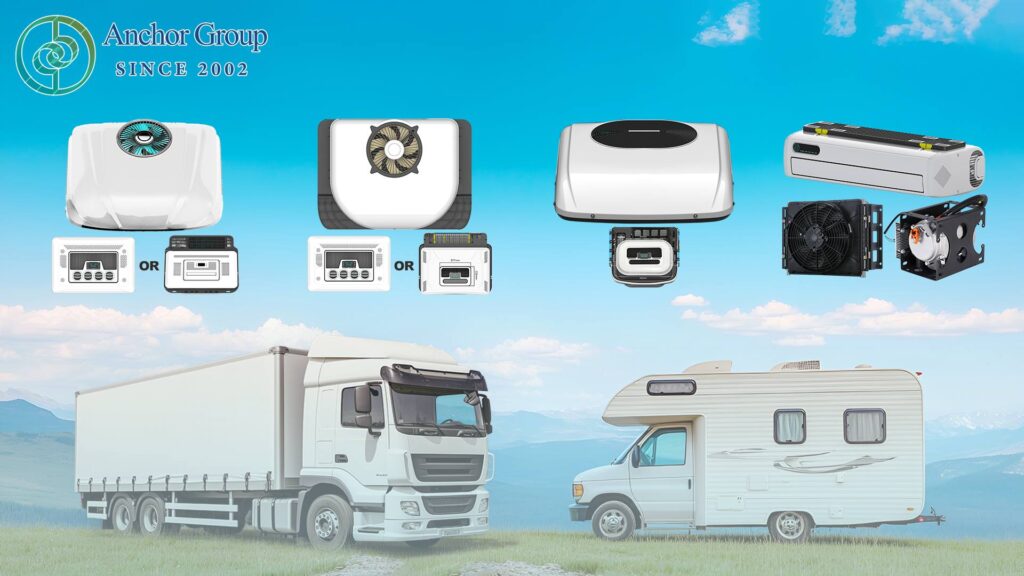
RV Air Conditioner Not Cooling? Here’s What You Need to Know
An RV air conditioner that isn’t cooling properly can be incredibly frustrating, especially during the summer when you need it the most. Whether you’re parked at a campsite or on the road, staying cool in your RV is essential for comfort. If you’re dealing with an air conditioner that isn’t performing as expected, don’t panic! There are several common reasons why this may happen, and many are easy to diagnose and fix yourself.
Common Causes of RV Air Conditioner Not Cooling
- Dirty Air Filter
- Problem: One of the most common reasons your RV AC may not be cooling effectively is a dirty or clogged air filter. The air filter traps dust, dirt, and other debris to keep the system running smoothly. Over time, these particles can build up and restrict airflow, making it harder for the air conditioner to cool the interior of your RV.
- Solution: Check and clean the air filter. If it’s too dirty or damaged, replace it with a new one. Cleaning or replacing the filter can significantly improve airflow and cooling efficiency.
- Low Refrigerant Levels
- Problem: Air conditioners rely on refrigerant (usually R-134a or R-410a) to absorb and release heat. If the refrigerant level is low, the AC will struggle to cool the air. This is often due to a leak somewhere in the system.
- Solution: If you suspect low refrigerant, it’s best to call a professional HVAC technician. They can check the refrigerant levels, identify any leaks, and refill the system.
- Blocked Vents or Ducts
- Problem: Blocked or clogged air ducts and vents can prevent cool air from circulating properly throughout your RV. Obstructions could include dust buildup, debris, or even insulation that has shifted out of place.
- Solution: Inspect the ducts and vents in your RV. Clear any blockages and ensure that the airflow is unobstructed. Proper airflow is crucial for effective cooling.
- Faulty Thermostat
- Problem: The thermostat controls the temperature settings of your RV’s air conditioner. If it’s malfunctioning, the AC might not be running at the correct temperature or might not turn on at all.
- Solution: Check your thermostat settings. Make sure the temperature is set to a cooler setting and that it’s functioning correctly. If the thermostat is still not working, it may need to be replaced.
- Overworked Air Conditioner
- Problem: If you’re parked in an area with extreme temperatures or the RV AC is running for long hours without a break, it might simply overheat or become overloaded. RV air conditioners aren’t designed to run constantly in very hot environments without rest.
- Solution: Allow the AC to cycle off and on for short periods. If you’re in a particularly hot environment, consider using additional fans or shade to help keep the interior temperature down.
- Compressor or Capacitor Issues
- Problem: The compressor and capacitor are essential components of your RV air conditioner’s cooling system. If either of these parts malfunctions, the air conditioner will struggle to cool the air.
- Solution: If you suspect an issue with the compressor or capacitor, it’s best to consult a professional HVAC technician. They can diagnose and replace faulty components.
- Improper Voltage
- Problem: RV air conditioners are designed to operate at specific voltage levels. If there is a voltage fluctuation or if the AC is receiving insufficient power, it will not cool properly.
- Solution: Ensure that your RV is connected to a stable power source. If you’re using a generator, make sure it’s supplying enough voltage for the air conditioner to run efficiently.
- Condensate Drain Clogged
- Problem: Air conditioners create condensation as they cool the air. This water needs to be drained away from the unit. If the condensate drain is clogged, the water can accumulate inside the unit, affecting its performance.
- Solution: Check the condensate drain and clear any blockages. Keeping the drainage system clear will help the unit run more effectively.
How to Maintain Your RV Air Conditioner
Preventing future issues is always better than dealing with a breakdown. Here are a few maintenance tips to keep your RV air conditioner running smoothly:
- Clean the Air Filter Regularly: A clean air filter will improve airflow and prevent dirt from accumulating in the system.
- Check for Refrigerant Leaks: If your AC is not cooling, have a professional check the refrigerant levels at least once a year.
- Clear Vents and Ducts: Make sure nothing is blocking the vents or air ducts to allow cool air to circulate properly.
- Keep the Exterior Clean: The exterior of your RV AC unit can accumulate dirt, leaves, and debris. Clean it periodically to ensure that the unit is not obstructed.
A malfunctioning RV air conditioner can put a damper on your travel plans, but with a little troubleshooting, many of the most common issues can be fixed quickly. Start by checking the air filter, refrigerant levels, and vents, and make sure your thermostat is working properly. If the issue persists, or if you suspect a more serious problem with the compressor or refrigerant, don’t hesitate to consult a professional. With regular maintenance, you can keep your RV air conditioner running at peak performance, ensuring comfort throughout your travels.
Anchor Group:
- RV Air Conditioner Troubleshooting
- How to Fix an RV Air Conditioner
- RV Air Conditioner Not Cooling Solutions
- Maintain Your RV AC System
- RV Air Conditioner Common Problems
- Refrigerant Leaks in RV Air Conditioners
- RV Air Conditioning Maintenance Tips
- Energy-Efficient RV Air Conditioner Solutions
Anchor Group is a leading provider of high-performance RV Air Conditioner systems, specializing in innovative cooling solutions for commercial vehicles, including trucks, buses, RVs, and more.
